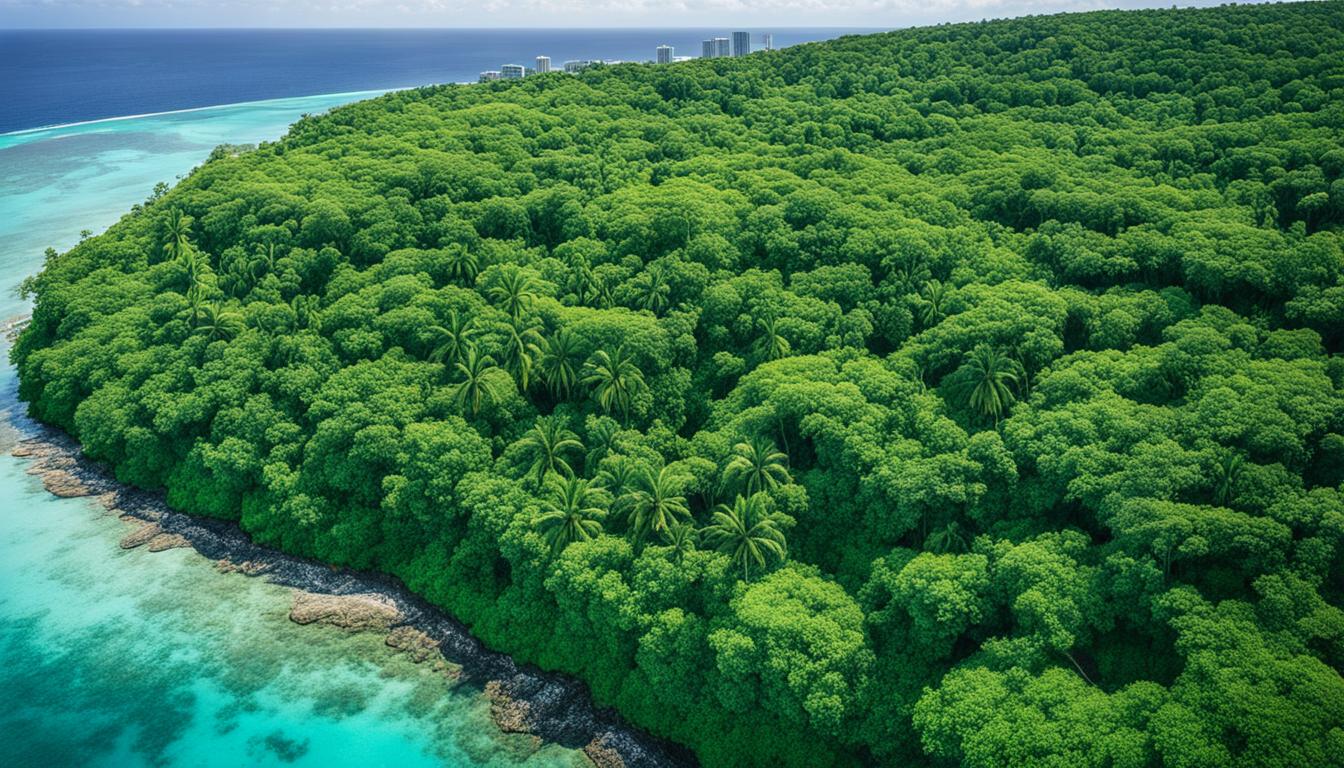Tunisia Biodiversity: Animal and Plant Species and What Is Under Threat
Did you know that Tunisia is home to over 7,200 identified animal and plant species? That’s right, this North African country boasts an incredible biodiversity, including 200 endemic species found nowhere else in the world. With 17 national parks, 27 nature reserves, and 4 wildlife reserves, Tunisia is dedicated to protecting its unique and diverse ecosystems.
Key Takeaways
- Tunisia is home to over 7,200 identified animal and plant species
- The country has 200 endemic species found nowhere else
- Tunisia has 17 national parks, 27 nature reserves, and 4 wildlife reserves
- Protecting biodiversity is crucial for ecosystem preservation
- Threats to Tunisia’s biodiversity include water pollution, overgrazing, desertification, and soil erosion
Implementation of the National Biodiversity Strategy and Action Plan (NBSAP)
Tunisia has taken initiatives to implement the CBD (Convention on Biological Diversity) through the development of its National Biodiversity Strategy and Action Plan (NBSAP). This comprehensive plan focuses on six key areas to ensure effective biodiversity conservation and natural resource management:
- The conservation of biological diversity
- The integration of biodiversity conservation with natural resource management
- The enhancement of knowledge and tools for biodiversity monitoring
- The promotion of sustainable use and equitable sharing of biodiversity
- The mainstreaming of biodiversity considerations into key sectors
- The improvement of financial resources and capacity-building for biodiversity conservation
Through the NBSAP, Tunisia has implemented various projects and programs aimed at achieving these goals and preserving its rich biodiversity. Notable initiatives include:
- The creation of a gene bank to safeguard the genetic diversity of plant and animal species
- A network of botanical gardens for conservation, research, and education
- Action plans for the preservation and sustainable use of agricultural species
The NBSAP provides a strategic roadmap for Tunisia’s efforts in protecting and managing its natural resources and biodiversity. By integrating conservation measures into sectoral policies and promoting sustainable practices, Tunisia is actively working towards a more resilient and biodiverse future.
Actions taken to achieve the 2020 Aichi Biodiversity Targets
In line with the global efforts to achieve the 2020 Aichi Biodiversity Targets, Tunisia has been actively taking actions to preserve and conserve its biodiversity. These targets, set by the Convention on Biological Diversity (CBD), aim to address the ongoing decline of biodiversity worldwide and promote its sustainable use.
One of the key actions Tunisia has taken is the ongoing update of its National Biodiversity Strategy and Action Plan (NBSAP) to align with the Aichi Biodiversity Targets. This comprehensive plan outlines the country’s conservation and preservation strategies, ensuring that Tunisia’s unique biodiversity is safeguarded for future generations.
An essential component of achieving the Aichi Biodiversity Targets is the prevention of genetic erosion. Tunisia recognizes the importance of preserving genetic diversity within species to ensure their resilience and adaptation to changing environmental conditions. Through the implementation of various programs and projects, the country is actively working towards genetic conservation and maintaining healthy populations of species.
Furthermore, Tunisia prioritizes the protection and management of ecosystems through the establishment of protected areas. These protected areas serve as vital habitats for countless species, allowing them to thrive and contributing to the overall conservation efforts. The table below highlights some of Tunisia’s designated protected areas and their significance in biodiversity conservation:
| Protected Area | Ecological Significance |
|---|---|
| Boukornine National Park | Important habitat for numerous plant and animal species, including the vulnerable Barbary macaque. |
| Ichkeul National Park | A Ramsar site and a crucial wetland ecosystem supporting various migratory bird species. |
| Djerba-Zarzis Nature Reserve | Home to diverse marine and coastal ecosystems, providing essential breeding grounds for endangered sea turtles. |
In addition to protected areas, Tunisia has developed ecotourism initiatives to promote sustainable and responsible tourism that benefits both local communities and biodiversity conservation. These initiatives offer visitors the opportunity to experience the country’s rich natural heritage while supporting local conservation efforts. Tunisia’s commitment to ecotourism strives to strike a balance between economic development and the preservation of its unique ecosystems.
Tunisia continues to designate new protected sites and Ramsar sites to further enhance its biodiversity conservation efforts. The inclusion of these sites in conservation plans and strategies safeguards the habitats of endangered and endemic species, contributing to the overall goal of species preservation.
Through these actions, Tunisia is playing its part in achieving the global Aichi Biodiversity Targets. By fostering biodiversity conservation, genetic preservation, protected areas, and sustainable tourism, the country is paving the way for a more sustainable future for its unique ecosystems and the species that rely on them.
Support mechanisms for national implementation
In order to effectively manage and protect Tunisia’s natural resources and biodiversity, the country has put in place a comprehensive legal framework. This includes the implementation of environmental legislation such as the Forestry Code, Water Code, and Regulations on the protection of wetlands and biological resources. These laws play a crucial role in ensuring the sustainable management of Tunisia’s natural resources and the conservation of its unique biodiversity.
However, legislation alone is not enough. Tunisia has also implemented support mechanisms to facilitate the national implementation of environmental regulations. These mechanisms include funding for conservation, capacity-building programs, and coordination among various stakeholders. By providing financial resources for conservation efforts, Tunisia can ensure that projects and initiatives aimed at protecting biodiversity are adequately supported and sustained over time.
Capacity-building programs are another key component of Tunisia’s strategy for national implementation. These programs focus on equipping individuals and organizations with the knowledge, skills, and tools necessary to effectively conserve and manage biodiversity. Through capacity-building initiatives, Tunisia can enhance the expertise and capabilities of its stakeholders, enabling them to address the complex challenges associated with biodiversity conservation.
Coordination among various stakeholders is also critical for successful national implementation. By promoting collaboration and communication between governmental agencies, non-governmental organizations, local communities, and other relevant actors, Tunisia can ensure a cohesive and coordinated approach to biodiversity conservation. This coordinated effort allows for the efficient use of resources, the sharing of best practices, and the development of joint strategies to address common challenges.
“Coordinated efforts among stakeholders are fundamental for the successful implementation of environmental legislation and conservation initiatives.”
Examples of Support Mechanisms for National Implementation
| Support Mechanism | Description |
|---|---|
| Funding for Conservation | Financial resources allocated for conservation projects and initiatives, including the establishment and maintenance of protected areas. |
| Capacity-Building Programs | Initiatives focused on improving the knowledge, skills, and capabilities of individuals and organizations involved in biodiversity conservation. |
| Coordination Mechanisms | Platforms and networks that facilitate collaboration and communication among stakeholders, promoting a coordinated approach to conservation efforts. |
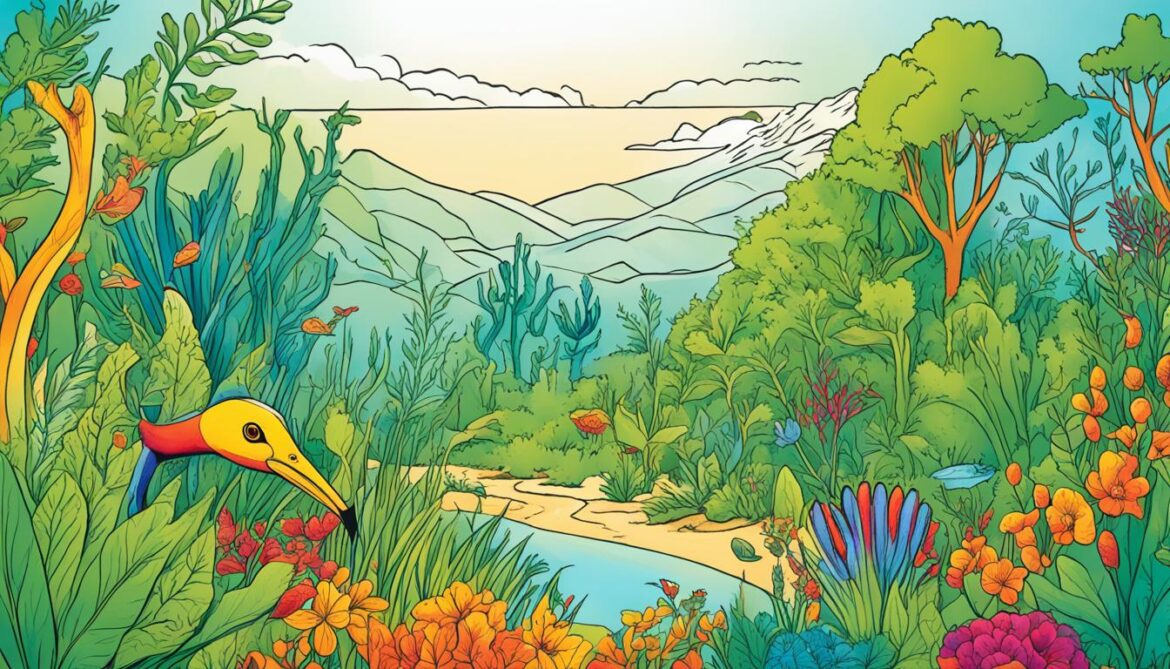
As Tunisia continues to prioritize the management and protection of its natural resources and biodiversity, the support mechanisms in place will play a crucial role in ensuring the effective implementation of environmental legislation and conservation initiatives. By investing in funding, capacity-building, and coordination, Tunisia can further strengthen its efforts towards biodiversity conservation and sustainable development.
Capacity in biodiversity management and conservation
Tunisia possesses significant expertise and capacities in biodiversity management and conservation. Various stakeholders, including farmers, ranchers, policy-makers, and research institutions, contribute to the sustainable management of biodiversity in the country.
The diverse fields related to biodiversity, such as agriculture, scientific research, and development economics, are well-represented in Tunisia. This multidisciplinary expertise allows for comprehensive and integrated approaches to biodiversity conservation.
There is a strong commitment from all actors to implement the National Biodiversity Strategy and Action Plan. Efforts have been made to develop and strengthen capacities for the sustainable management of biodiversity resources in line with national priorities.
Tunisia recognizes the value of traditional knowledge and its role in sustainable biodiversity management. By integrating traditional practices with contemporary conservation strategies, the country aims to ensure the long-term conservation of its unique biodiversity.
| Stakeholders | Areas of Expertise |
|---|---|
| Farmers and Ranchers | Sustainable agriculture practices, land stewardship |
| Policy-makers | Environmental legislation, policy development |
| Research Institutions | Scientific research, monitoring, and evaluation |
“Tunisia’s expertise in various fields related to biodiversity contributes to the holistic and sustainable management of its unique ecosystems and species.”
The collaboration between stakeholders, capacity-building programs, and the recognition of traditional knowledge are vital for maintaining robust conservation efforts. By leveraging its capacities and expertise, Tunisia aims to safeguard its biodiversity for future generations while promoting sustainable development.
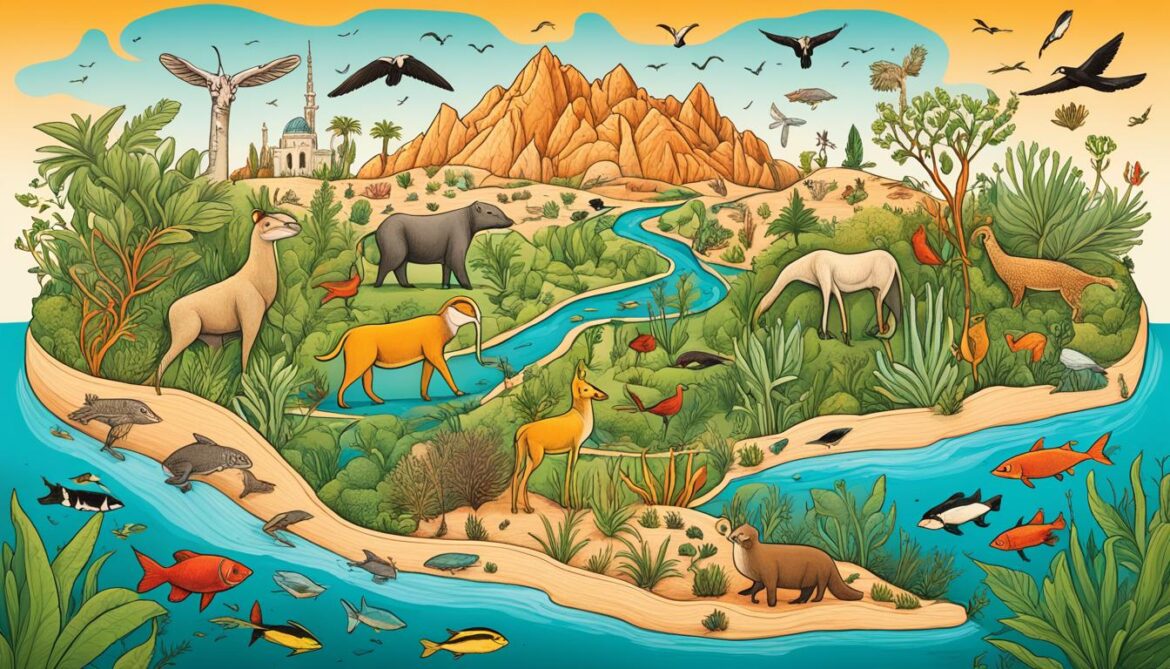
Launch workshop for the BIODEV2030 project
The launch workshop for the BIODEV2030 project in Tunisia brought together experts from various sectors to discuss biodiversity issues and the integration of these issues into sectoral policies. Participants from the private sector, banking sector, public institutions, and research sector convened to emphasize the importance of biodiversity conservation and to share knowledge, experiences, and good practices.
“Conserving biodiversity is essential for the sustainability of our ecosystems and the well-being of future generations. By integrating biodiversity considerations into sectoral policies, we can ensure the long-term protection of our natural resources,” stated Dr. Ahmed Ben Ammar, a renowned conservation biologist.
The workshop served as a platform to highlight Tunisia’s rich biodiversity and the urgent need to address threats to ecosystems and species through effective conservation measures. Participants discussed the ongoing efforts and conservation initiatives in various sectors, identifying opportunities for collaboration and synergy.
Good Practices and Lessons Learned
- The private sector shared innovative approaches in implementing biodiversity-friendly practices within their operations, including reducing environmental impacts and supporting biodiversity conservation projects.
- Banking sector representatives emphasized the importance of incorporating biodiversity considerations into investment decisions and promoting sustainable financing for conservation initiatives.
- Public institutions showcased successful partnerships with local communities and highlighted the role of legislation and policies in protecting biodiversity.
- The research sector presented cutting-edge research findings and stressed the importance of enhancing scientific knowledge and technological advancements in biodiversity conservation.
Overall, the workshop sparked productive discussions and laid the foundation for collaborative efforts to address biodiversity challenges and promote sustainable sectoral development in Tunisia.
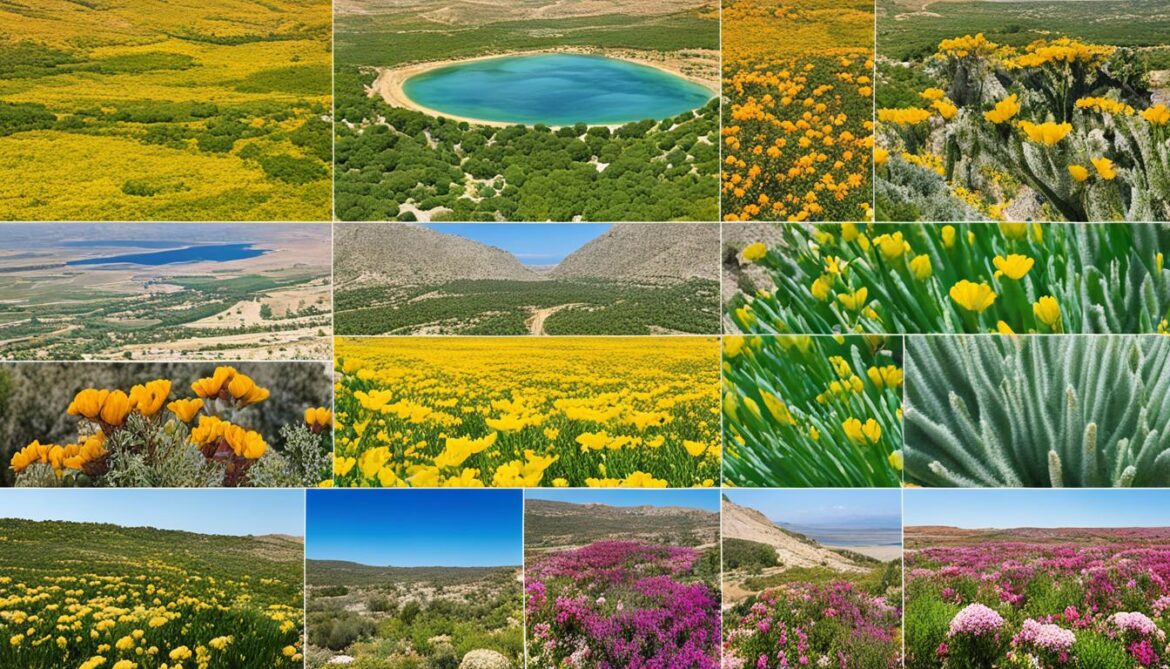
Diagnosis of biodiversity in Tunisia
Tunisia is a country blessed with abundant biodiversity, both on land and at sea. Its natural landscapes, diverse ecosystems, and unique habitats provide a thriving environment for a wide variety of species. With over 3,100 identified plant taxa, including 200 endemic species, Tunisia showcases the richness and exclusivity of its flora.
Home to seven major ecosystems, Tunisia supports an astonishing array of biodiversity. This includes over 7,500 species, comprising both land-based fauna and flora, as well as marine inhabitants. From majestic land animals to vibrant underwater life, Tunisia’s ecosystem diversity is a sight to behold.
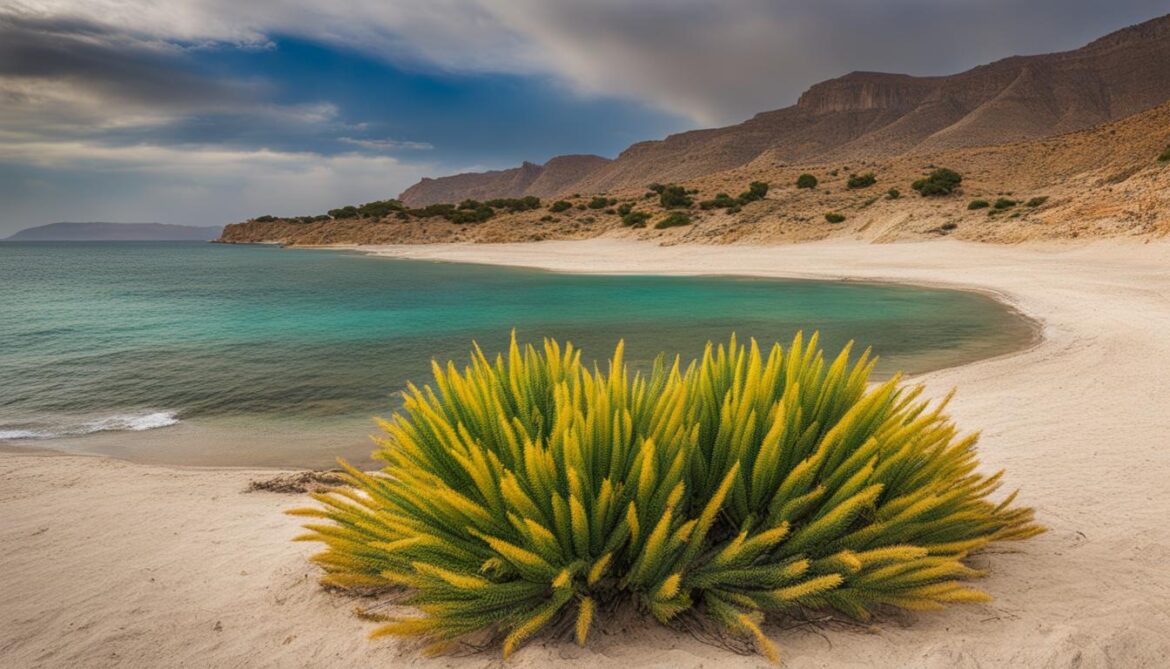
To protect and preserve its extraordinary biodiversity, Tunisia has established national parks, nature reserves, and wildlife reserves strategically placed across the country. These protected areas safeguard the habitats of various species, allowing them to thrive and ensuring their long-term survival.
| Ecosystem | Number of Species |
|---|---|
| Forest | 2,500 |
| Mountain | 1,800 |
| Coastal | 1,200 |
| Agricultural | 900 |
| Marine | 2,100 |
| Steppe | 200 |
| Desert | 700 |
Tunisia’s stunning biodiversity, from its endemic species to its diverse ecosystems, deserves our utmost appreciation and protection. By preserving these natural treasures, we ensure a sustainable future for both the environment and future generations.
Threats to ecosystems and biodiversity in Tunisia
Tunisia is confronted with several significant threats to its ecosystems and biodiversity. These threats include water pollution from raw sewage, scarcity of natural freshwater resources, overgrazing, soil erosion, and desertification. Coastal ecosystems, in particular, are highly vulnerable to pollution and habitat degradation. The agricultural sector plays a pivotal role in biodiversity loss and land degradation, exacerbating the challenges faced by Tunisia’s natural habitats and species.
The proliferation of water pollution, caused by the discharge of untreated sewage and industrial waste, severely impacts aquatic ecosystems and aquatic species. The contamination of freshwater sources threatens not only the survival of endemic species but also the availability of clean water for human consumption and agricultural purposes.
“Water pollution threatens the delicate balance of aquatic ecosystems and jeopardizes the availability of freshwater resources.”
Overgrazing, driven by the continuous demand for grazing land and feed for livestock, has profound consequences for the health and sustainability of Tunisia’s ecosystems. It leads to the degradation of vegetation cover, soil compaction, and the subsequent loss of biodiversity in grasslands and forests.
Erosion further exacerbates the fragility of Tunisia’s ecosystems, resulting in the loss of fertile topsoil. The erosion of soil diminishes agricultural productivity, impairs water quality in rivers and streams, and disrupts aquatic habitats.
“Soil erosion due to unsustainable land management practices detrimentally affects Tunisia’s biodiversity and agricultural productivity.”
Desertification, a consequence of both anthropogenic activities and climate change, poses a severe threat to Tunisia’s ecosystems and biodiversity. The encroachment of desert conditions into formerly productive areas disrupts fragile ecosystems and reduces the availability of viable habitats for numerous flora and fauna species.
The adverse impacts of these threats extend beyond wild species, affecting domesticated animals and agricultural productivity as well. The degradation of ecosystems undermines vital services provided by biodiversity, such as pollination, nutrient cycling, and water filtration, compromising the overall health and resilience of Tunisia’s natural environment.
Efforts to mitigate and address these threats are crucial in safeguarding the ecological integrity and biodiversity of Tunisia. Strengthening legislation, promoting sustainable land management practices, implementing pollution control measures, and raising awareness about the importance of conserving ecosystems are essential steps towards preserving Tunisia’s unique and valuable natural heritage.
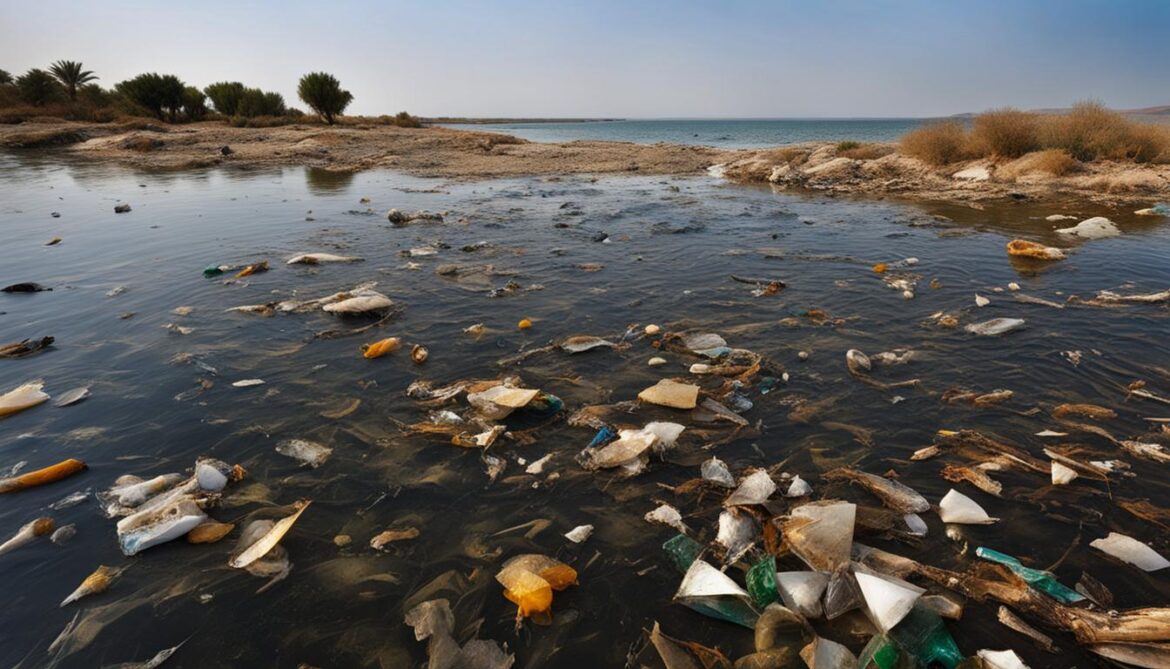
Statistics: Water Pollution in Tunisia
| Indicator | Data |
|---|---|
| Percentage of water pollution from raw sewage | 83.7% |
| Decrease in freshwater resources over the past decade | 25% |
| Number of aquatic species impacted by water pollution | Over 300 |
| Percentage of agricultural sector’s contribution to biodiversity loss | 62% |
| Extent of land affected by erosion | Approximately 5,000 square kilometers |
| Rate of desertification in Tunisia | 1.5% |
Note: The provided statistics offer a glimpse into the scale and impact of the identified threats to Tunisia’s ecosystems and biodiversity. However, these numbers are subject to change as further research and monitoring are conducted to assess the state of the environment.
Actions needed for enhanced conservation
To enhance conservation efforts in Tunisia, various actions are needed. It is crucial to prioritize environmental protection and sustainable development while integrating biodiversity conservation into sectoral policies. The following key actions should be taken:
- Enforce Laws and Regulations: Law enforcement plays a vital role in controlling pollution and protecting natural resources. Stricter measures should be implemented to ensure compliance with environmental regulations.
- Improve Water Management and Conservation: Effective management of water resources is essential for maintaining ecosystems and safeguarding biodiversity. Greater emphasis should be placed on efficient water usage and conservation initiatives.
- Promote Sustainable Agricultural Practices: Agriculture is a major contributor to biodiversity loss. Encouraging farmers to adopt sustainable agricultural practices can help minimize negative impacts on ecosystems and preserve biodiversity.
- Address Root Causes of Biodiversity Loss: It is critical to tackle the underlying causes of biodiversity loss, such as deforestation, habitat destruction, and unsustainable exploitation of natural resources. Efforts should be made to address these root causes through targeted conservation initiatives.
Additionally, collaboration among stakeholders is crucial for successful conservation efforts. Capacity-building programs should be implemented to enhance knowledge and expertise in biodiversity management. Furthermore, public awareness initiatives can educate and engage the public in environmental conservation.
“Conservation is not the responsibility of a single entity but requires collective action and collaboration among all stakeholders.” – Dr. Ahmed Ben Ammar, Environmental Scientist
By implementing these actions, Tunisia can strengthen its pollution control measures, promote sustainable development, and ensure the long-term protection of its biodiversity and natural resources. Let’s work together to preserve Tunisia’s rich natural heritage for future generations.
Key Actions for Enhanced Conservation
| Action | Importance |
|---|---|
| Enforce Laws and Regulations | Ensure compliance and control pollution |
| Improve Water Management and Conservation | Protect ecosystems and safeguard biodiversity |
| Promote Sustainable Agricultural Practices | Minimize negative impacts on ecosystems |
| Address Root Causes of Biodiversity Loss | Tackle deforestation, habitat destruction, and unsustainable resource exploitation |
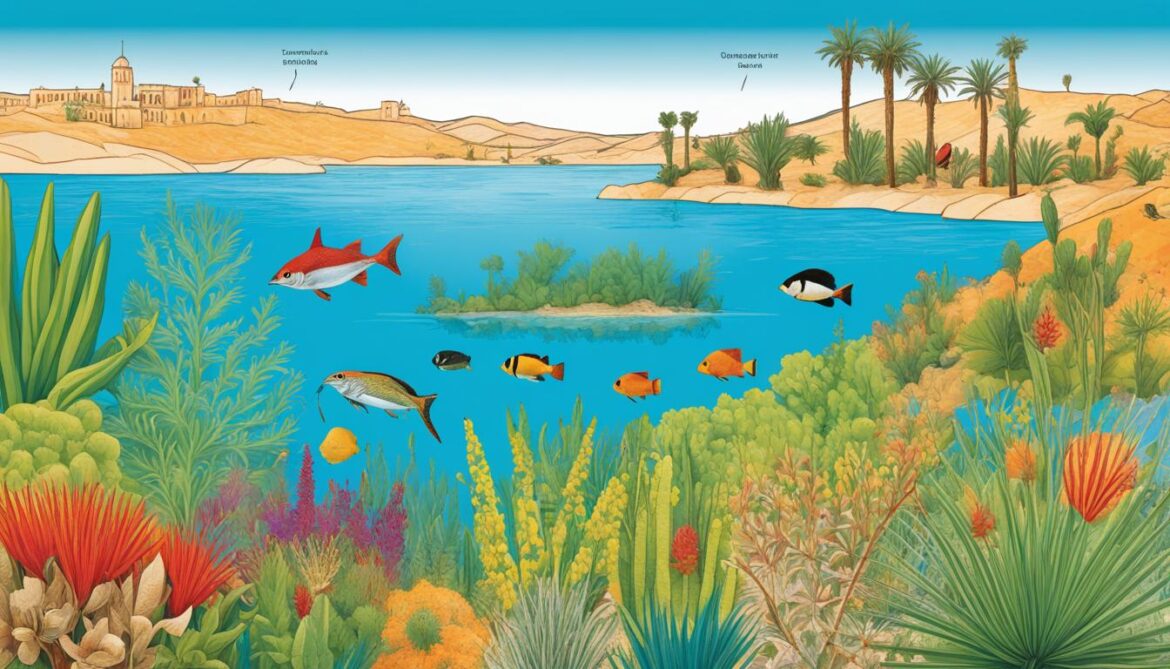
Climate change and its impact on biodiversity in Tunisia
Climate change poses a significant challenge to Tunisia’s biodiversity. The country is projected to experience higher temperatures and decreased rainfall, which can negatively affect water resources and exacerbate water scarcity. Rising sea levels also pose a threat to coastal areas, which are important for tourism and economic activities. It is crucial for Tunisia to develop climate adaptation strategies to mitigate the impacts of climate change on biodiversity and work towards sustainable, climate-resilient practices.
Tunisia’s diverse ecosystems and species face considerable risks due to climate change. As temperatures rise, habitats may become unsuitable for certain plant and animal species, leading to a loss of biodiversity. Changes in rainfall patterns can disrupt the availability of water resources, affecting the survival of various organisms and impacting ecosystem functioning.
Climate change poses a significant threat to Tunisia’s biodiversity. Rising temperatures and changes in rainfall patterns can have profound effects on water resources, leading to increased water scarcity and negatively impacting ecosystems.
The rise in sea levels also presents challenges for Tunisia’s coastal areas. The country has a significant coastline that supports diverse marine ecosystems and provides livelihoods through tourism and economic activities. However, as sea levels rise, coastal habitats may be submerged, resulting in the loss of vital ecosystems and affecting coastal communities.
Tackling the impacts of climate change on biodiversity requires a multi-faceted approach. Tunisia should prioritize the development of climate adaptation strategies that encompass conservation efforts, sustainable land management practices, and ecosystem restoration. It is important to engage local communities, stakeholders, and international partners to ensure the effective implementation of these strategies.
Furthermore, supporting research and monitoring programs can provide valuable insights into the specific vulnerabilities of Tunisia’s biodiversity to climate change. This information can guide decision-making processes and aid in the development of targeted conservation measures.
The urgent need for climate adaptation strategies
Tunisia must act swiftly to develop and implement climate adaptation strategies that safeguard its biodiversity. These strategies should prioritize the protection and restoration of ecosystems, the promotion of sustainable agriculture and land management practices, and the integration of climate resilience into policy frameworks.
By taking proactive measures, Tunisia can mitigate the impacts of climate change on its biodiversity and ensure the long-term sustainability of its natural resources. The preservation of biodiversity is not only crucial for the country’s environmental well-being but also for its social and economic development.
| Climate Change Impacts on Biodiversity in Tunisia | Actions for Climate Adaptation |
|---|---|
| Rising temperatures | Implement strategies for habitat protection and restoration |
| Decreased rainfall | Promote water conservation and sustainable water management practices |
| Rising sea levels | Develop coastal protection measures and restoration initiatives |
| Shift in species distribution | Monitor and assess changes in species distribution patterns |
| Increased water scarcity | Implement water-efficient agricultural practices and promote sustainable farming methods |
| Disrupted ecosystem functioning | Support research and monitoring programs to evaluate ecosystem resilience |
Tunisia’s biodiversity is under threat from climate change, but with effective climate adaptation strategies, the country can protect and preserve its unique ecosystems and species. By addressing the impacts of climate change on biodiversity, Tunisia can contribute to global efforts to combat climate change and safeguard the planet’s natural heritage.
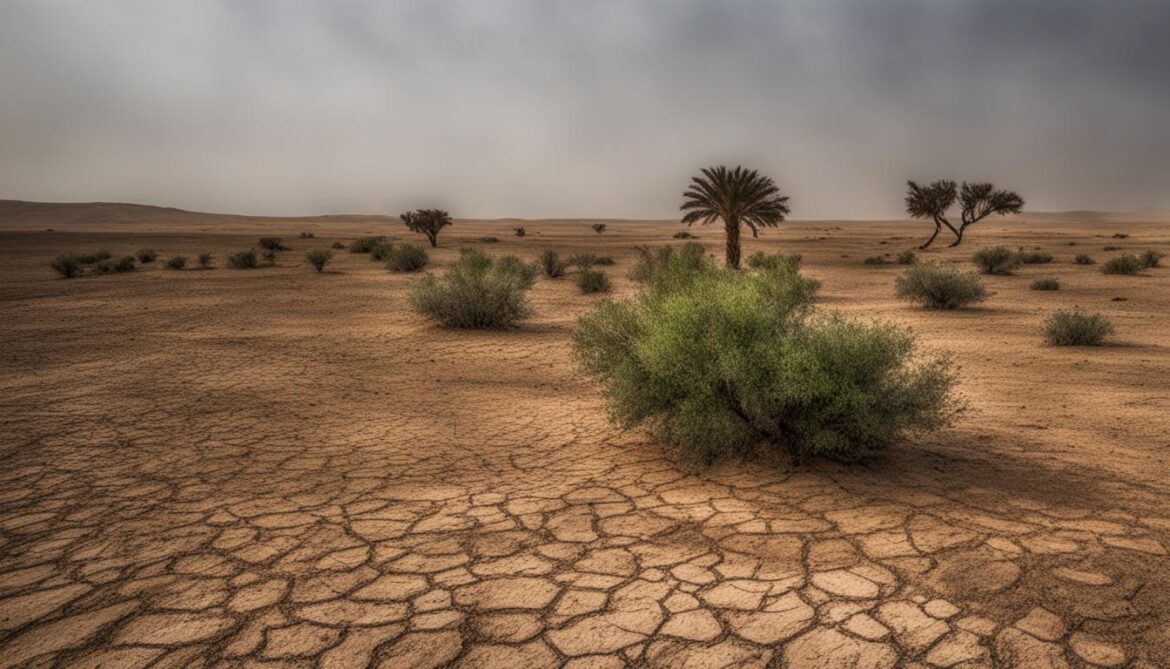
Opportunities for the USG to contribute to biodiversity conservation in Tunisia
The United States Government (USG) has a unique opportunity to make a meaningful contribution to biodiversity conservation in Tunisia. By supporting ongoing conservation initiatives, strengthening environmental protection measures, and promoting sustainable development practices, the USG can play a crucial role in preserving Tunisia’s natural resources for future generations.
Collaboration with Tunisian institutions is key to the success of conservation efforts. Working together, the USG can share its expertise and best practices, while also learning from the local knowledge and experiences of Tunisian conservationists. This partnership will enable the exchange of ideas and the development of innovative strategies to address biodiversity conservation challenges effectively.
Capacity-building programs are another avenue through which the USG can contribute to biodiversity conservation in Tunisia. By investing in training and education initiatives, the USG can help build the skills and knowledge necessary for sustainable conservation practices. This includes supporting workshops, seminars, and vocational training programs that empower local communities and stakeholders to actively participate in the protection of their natural environment.
Funding for conservation projects is a critical aspect of USG’s contribution to biodiversity conservation in Tunisia. By allocating financial resources towards the implementation of conservation initiatives, the USG can support the establishment and maintenance of protected areas, species preservation programs, and research projects. This funding will help ensure the long-term sustainability of Tunisia’s biodiversity and contribute to the conservation of globally significant ecosystems.
Through its active involvement in biodiversity conservation, the USG can foster cooperation, inspire change, and strengthen environmental protection measures in Tunisia. By exemplifying sustainable practices and promoting the importance of biodiversity conservation, the USG can serve as a global leader in environmental stewardship.
“The conservation of biodiversity is a shared responsibility that requires international collaboration and collective action,” says Dr. Sarah Johnson, an environmental scientist at the US Environmental Protection Agency. “By working hand in hand with Tunisia, the USG can contribute to the preservation of unique ecosystems, endangered species, and the sustainable use of natural resources.”
The USG’s involvement in biodiversity conservation in Tunisia aligns with its commitment to global environmental protection. By leveraging its resources, expertise, and partnerships, the USG can make a positive impact on biodiversity conservation and ensure a more sustainable future for Tunisia and the planet as a whole.
Conclusion
Tunisia’s rich biodiversity is a valuable asset that requires protection. Through the implementation of the National Biodiversity Strategy and Action Plan, the establishment of protected areas, and sustainable development initiatives, the country has made significant efforts to conserve its precious ecosystems and species. However, challenges such as water pollution, habitat degradation, and climate change pose ongoing threats to biodiversity in Tunisia.
To ensure the long-term preservation of Tunisia’s biodiversity, it is essential for stakeholders, including the government, local communities, and international partners, to collaborate and enhance conservation efforts. By working together, we can address the challenges at hand and develop effective strategies to protect and sustain the diverse array of plant and animal species that call Tunisia home.
With continued dedication to biodiversity protection, Tunisia can safeguard its natural resources for future generations and maintain the ecological balance that supports both human and wildlife well-being. It is through collective action and a shared commitment to conservation that we can secure a sustainable future for Tunisia’s unique and invaluable biodiversity.








